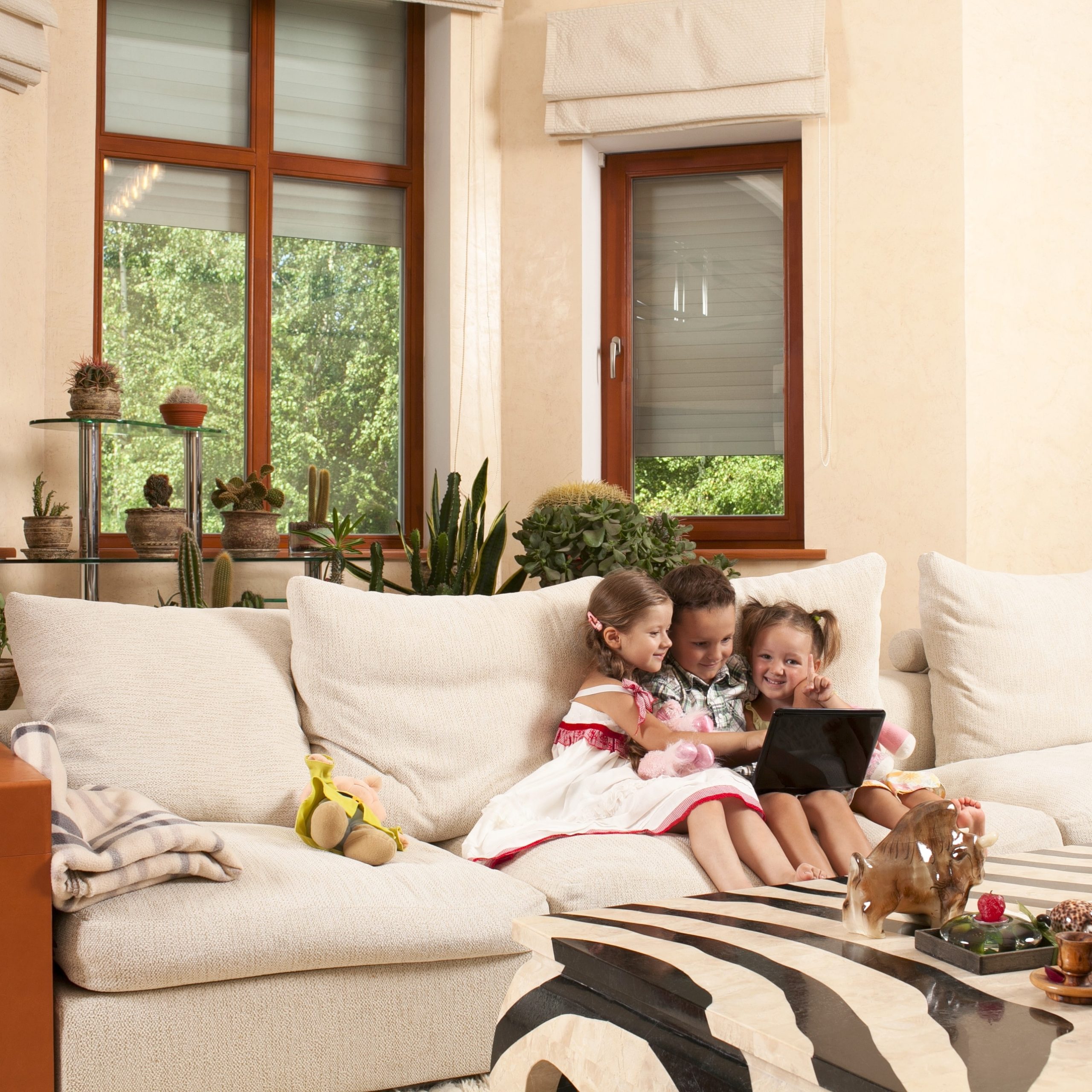Savvy homeowners recognize the numerous benefits of investing in cost-efficient solar screens, such as Habitat Screens, as the mercury rises to new heights and weather patterns change, around the globe.
Here’s what you need to know before making a purchase.
The Basics
Solar screens, sometimes called solar shades or sun screens, protect your home and its contents from the sun’s more unpleasant effects, namely harmful, damaging ultraviolet light and costly temperature swings (more on that later.)
Quality solar screens mount outside of the glass and improve privacy by reducing visibility into your home — without sacrificing the view of the world beyond your windows.
They’re retractable, and a welcome addition around the patio, deck, dock or other outdoor seating niche, keeping breezy gusts or pesky bugs from becoming unwelcome guests, during an alfresco meal or a fresh-air nap.
Solar shades reduce glare, letting you clearly see your phone or tablet’s screen, while working, surfing or texting, outdoors or from a sunny room.
Why Solar Screens are a Wise Investment
While it’s common for homeowners to throw money at leaky roofs and drafty windows, some folks overlook the toll that the sun takes on their homes. For starters, the sun’s rays fade all sorts of things, from patio furniture to pool liners.
But what about indoor upholstery, linens, wood furniture, wall treatments, curtains, blinds, flooring, artwork and more? When sunlight streams through unprotected or poorly protected windows, it eventually bleaches, discolours or dries out practically everything it reaches.
Smart investments, such as energy-efficient solar screens, eventually pay for themselves, acting sort of like an extended insurance policy, covering your furnishings, fixtures and finishes — and the folks who reside within.
Get Your Money’s Worth
Why waste hard-earned dollars on a low-quality product with little UV protection, or one that you have to replace after leaving it down on a blustery day? Instead, look for a superior solar shade that stretches your dollars in multiple ways. Choose a product that:
- Mitigates UV damage
- Includes an edge retention system that withstands high winds
- Reduces window condensation, which can otherwise cause mold, rot frames and damage plaster or drywall
- Cuts cooling and heating costs, and minimizes your carbon footprint
When possible, visit a showroom, trade-show booth or retail location where you can try before you buy:
- Check that the screen, panel box and guide rails appear durable enough to withstand years of use and weather.
- Operate the manual crank and motorized system to ensure that the shade rolls smoothly in and out of the housing. After all, you might want to roll them away on a dreary day — you can’t do that with UV window-tinting applications, which darken homes around the clock, rain or shine.
- Decide if the product looks streamlined or inconspicuous enough to blend with your home’s facade.
The More Appealing the Better
Home is where we tuck away from the world’s stresses, but it’s also a source of pride and one of our biggest assets — just a few reasons to contemplate each addition or change we make to its appearance.
Before purchasing solar screens, consider the colour options available. Intuitive buyers (and designers and real-estate agents) know that a screen’s housing should complement or blend with the exterior. Habitat Screens, for instance, come in four standard colours and more than 1800 custom colours, meaning you don’t have to sacrifice style for practically.
What about the colour of the screen itself? Make sure the screen material comes in several shades, in order to provide the look and natural-lighting effect you’re after.
The Lowdown on Weave Density
Your home’s natural lighting varies by the direction each interior room or outdoor niche faces. So, choose a solar screen that comes in various weave densities. That way, you can order a screen with a heavy weave for a living room or patio that faces south or a bedroom that floods with summer-evening sunlight, or select a lightweight screen to control just a bit of the sunshine that pours into the kitchen at a certain time of day, for instance.
Ask Questions
A good place to begin comparing solar screens is a website’s FAQ page. But when it comes to such a relatively involved purchase, it’s usually best to speak to a representative.
Don’t be shy: Ask about durability, aesthetics, light control, heat control, warranty, installation and more. Examples of questions you might ask include:
- Are your solar screens compatible with common window sizes? What about custom fits?
- Can an exterior screen replace traditional interior screens or window treatments?
- Do you offer screen-housing colours to complement all types of home exteriors?
- What about installation, maintenance and cleaning?
- Do you offer both crank and motorized systems?
- How do solar screens differ from tinted windows?
- What if I live in a windy area?
- What about the warranty?
- How long have you been in business and who are your affiliates? Prominent trade associates often signify a trusted, well-established company.
Hey, it’s your money on the line, so don’t hesitate to inquire and “kick tires” when looking for a solar screen that fits your needs.
To learn more about Habitat Screens or other Talius products, reach out by email or call 1-800-665-5550, preferably before the next sunrise.












